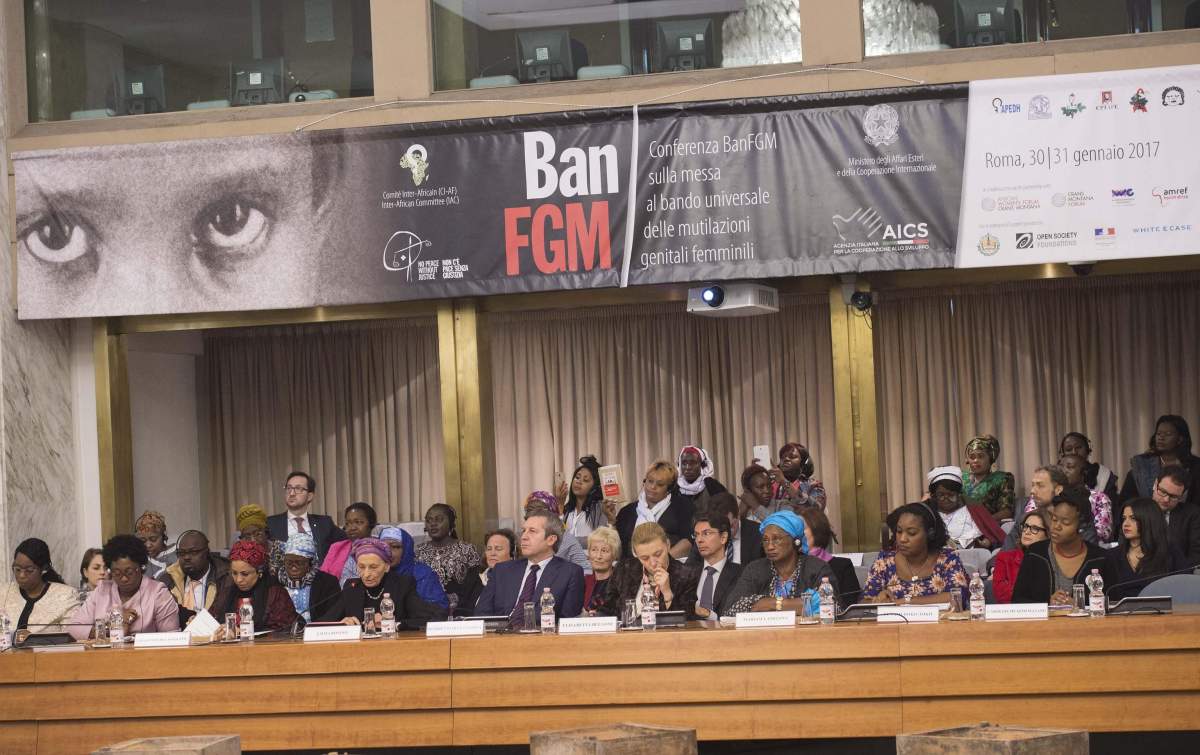Filmmaker Giselle Portenier arrived in Edmonton this week, stepped into a cab and struck up a conversation with the driver about an uncomfortable, still-taboo topic.

“He told me that every woman in his family, including his wife, has been through female genital mutilation.”
The World Health Organization estimates the procedure has been performed on some 200 million women and girls.
Now the Alberta government is joining the fight
Portenier is in Edmonton for a screening of her film In the Name of Your Daughter which tells the stories of young girls fleeing female genital mutilation, also called “the cut” or female circumcision.
And now the B.C. human rights journalist is combining forces with Alberta’s minister for the Status of Women in a war against the practice.
“There’s so little information, but so many women have been impacted,” says Minister Leela Sharon Aheer.
“Every 11 seconds a girl somewhere in the world is mutilated,” adds Portenier.
She cites several Canadian women she has met who’ve suffered through it. “It’s happening on every continent, except Antarctica.”
In the shadows
“We just can’t speak about it in the shadows any more,” says Aheer.
She wants to hear from victims, the medical and justice communities, and those potentially at risk. Her goal is to gather more information and form a plan of attack.
-PKG-ONLINE_848x480_1343172675617.jpg?w=1040&quality=70&strip=all)
READ MORE: Meet the 27-year-old who saved 16,000 girls from genital mutilation

Get weekly health news
“Girls are valuable. They are beautifully and perfectly born the way they are and should stay intact,” says Aheer in explaining the message she’s urging others to hear.
“Any attempt to mutilate a child is an act against human rights. It is an act of abuse.”
It’s tough to fight a practice that’s under-reported and often kept secret. Aheer says parents and doctors sometimes collaborate to have the procedure performed, leaving young victims powerless to avoid it. The pair is calling for a national action plan and tougher federal legislation specific to FGM.
READ MORE: COMMENTARY: Female genital mutilation is child abuse — and we’re not doing enough to stop it
“We perpetuate the idea that we protect women and girls, and yet at the federal level it’s only considered aggravated assault and not child abuse,” says Aheer.
A global problem
Portenier points out FGM is not limited to a small number of countries or cultures. The Edmonton cab driver she spoke to was a Muslim man from Ethiopia. The very next day, she heard a similar story from a new Canadian, this one a Christian. “It happens across all communities,” she says.
Aheer acknowledges imposing our collective values on other countries and cultures is complex, “but in Canada we have to draw some really firm lines in the sand as to what we consider child abuse to be.”
READ MORE: Swedish city advises girls facing genital mutilation threat to hide spoon in underwear
The United Nations has called for zero tolerance for the practice.
“For far too long we’ve been so worried about the sensitivities of the adults, we have sacrificed the human rights of the girl,” says Portenier. “They need our help. The children need our help.”
If you need help or resources around female genital mutilation, contact the Child Abuse Hotline at 1800-387-KIDS (5437) or Alberta Health Link at 811.





Comments
Comments closed.
Due to the sensitive and/or legal subject matter of some of the content on globalnews.ca, we reserve the ability to disable comments from time to time.
Please see our Commenting Policy for more.